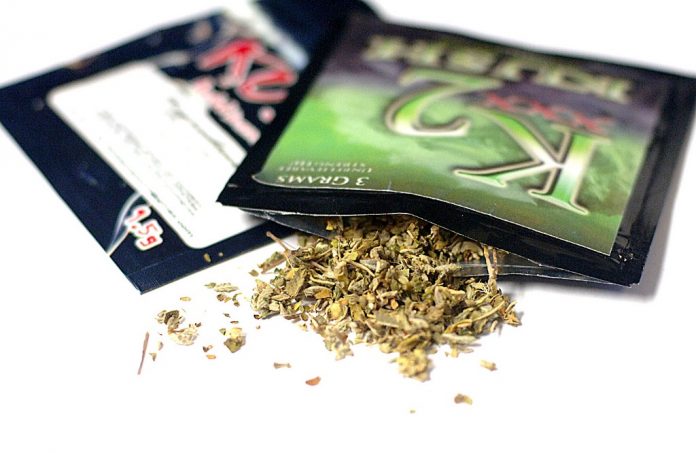Stricter laws: Synthetic marijuana, often sold in gas stations, smoke shops and convenience stores, is labeled with names like Kush (shown above), Cloud Nine, Kryptonite and Dead Man.
Gov. Tom Corbett earlier this month signed legislation that makes it harder for the makers of synthetic marijuana and other synthetic drugs to dodge arrest.
“This legislation is aimed at combating the practice of illegal drug manufacturers who continue to find new synthetic compounds not on the controlled substances list in which to create new harmful drug cocktails,” said state Rep. Jerry Stern (R-Blair), the author of House Bill 1217.
Synthetic marijuana, often sold in gas stations, smoke shops and convenience stores in small packages labeled with names like Kush, Cloud Nine, Kryptonite and Dead Man, is the second most abused drug by American teens, according to the White House. It is any kind of dried vegetable matter sprayed with a substance that simulates the high of marijuana, the drug most abused by teens.
“Bath salts” is the street name for any number of substances that simulate the effects of cocaine or amphetamines. They’re called “bath salts” because they look like Epsom salts.
Synthetic marijuana and bath salts have been illegal in Pennsylvania since 2011. Stern authored legislation that year that added them to the state’s list of controlled substances.
However, drug makers would alter the formulas to make substances there were not illegal, Philadelphia District Attorney Seth Williams stated in a July 3 email to the Northeast Times.
Labs across the state were finding the chemical compounds “changing almost daily,” Stern said in a July 3 phone interview.
“The new law addresses this problem by defining the core compound of these drugs so that, if the manufacturers modify the composition of the product, the drug will remain prohibited,” Williams stated. “We believe this approach will limit the ability of illicit illegal drug manufacturers to skirt the law by tweaking the formulas of bath salts and synthetic marijuana.”
For Stern, it was bath salts and the five deaths their use had caused in Blair County that spurred the 2011 legislation. Use of the designer drug was epidemic in Blair, he said, and emergency rooms and police departments were not prepared for people experiencing hallucinations and exhibiting paranoid behavior.
That’s changed, he said. Officers are being trained to recognize the behavior of bath salts users.
ldquo;They act differently,” he said. “They think they are indestructible.” ••





